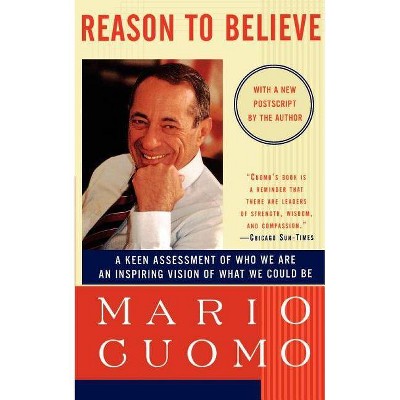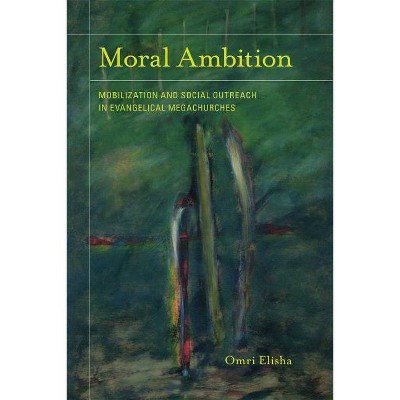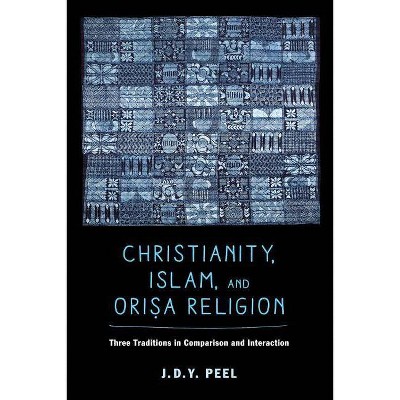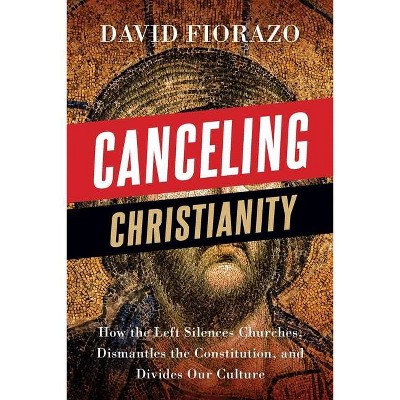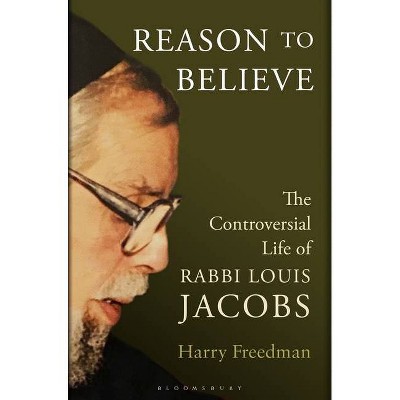Reason to Believe, 3 - (Anthropology of Christianity) by David Smilde (Paperback)
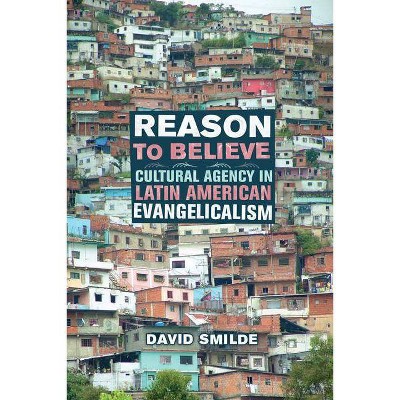
Similar Products
Products of same category from the store
AllProduct info
<p/><br></br><p><b> About the Book </b></p></br></br>"David Smilde has given us the most sophisticated and rigorous ethnography of Evangelicalism in the Americas, north or south. And he uses that ethnography to generate a persuasive theory of 'cultural agency.' His analysis moves from the particular to the general, and from the concrete to the abstract, with unusual facility."--Jeff Goodwin, New York University <BR>"This book masterfully combines ethnographic description with sophisticated theoretical analysis of the role that religion plays in the lives of men who are struggling with alcohol, drugs, and gambling in Venezuela. Based on three years of in-depth interviewing and observation in Caracas, David Smilde's study beautifully portrays the dynamics of male culture in a violent city and describes why some individuals decide to convert to the Pentecostal faith. Smilde makes a major contribution to our understanding of human agency, cultural empowerment, and the role of conservative religion."--Donald E. Miller, author of "Reinventing American Protestantism: Christianity in the New Millennium" <BR>"This is a significant achievement. Smilde combines fascinating data with a thorough and compelling reworking of theories of cultural change and religion. His emphasis on cultural change as the practice of imaginative rationality opens a valuable path for understanding what conversion means to those in the middle of the process. Coming to believe involves more than the disembodied play of mental abstractions. It arises within daily life and is best understood within the rich context of cross pressures and desires for a more healthful and satisfying existence. Smilde reveals not only that we can convince ourselves to believe, but that we all do it every day."--Daniel H Levine, author of "Popular Voices in Latin American Catholicism"<p/><br></br><p><b> Book Synopsis </b></p></br></br>Evangelical Protestantism has arguably become the fastest-growing religion in South America, if not the world. For converts, it emphasizes self-discipline and provides a network of communal support, which together have helped many overcome substance abuse, avoid crime and violence, and resolve relationship problems. But can people simply decide to believe in a religion because of the benefits it reportedly delivers? Based on extensive fieldwork among Pentecostal men in Caracas, Venezuela, this rich urban ethnography seeks an explanation for the explosion of Evangelical Protestantism, unraveling the cultural and personal dynamics of Evangelical conversion to show how and why these men make the choice to convert, and how they come to have faith in a new system of beliefs and practices.<p/><br></br><p><b> From the Back Cover </b></p></br></br>David Smilde has given us the most sophisticated and rigorous ethnography of Evangelicalism in the Americas, north or south. And he uses that ethnography to generate a persuasive theory of 'cultural agency.' His analysis moves from the particular to the general, and from the concrete to the abstract, with unusual facility.--Jeff Goodwin, New York University<br /><br />This book masterfully combines ethnographic description with sophisticated theoretical analysis of the role that religion plays in the lives of men who are struggling with alcohol, drugs, and gambling in Venezuela. Based on three years of in-depth interviewing and observation in Caracas, David Smilde's study beautifully portrays the dynamics of male culture in a violent city and describes why some individuals decide to convert to the Pentecostal faith. Smilde makes a major contribution to our understanding of human agency, cultural empowerment, and the role of conservative religion.--Donald E. Miller, author of <i>Reinventing American Protestantism: Christianity in the New Millennium</i><br /><br />This is a significant achievement. Smilde combines fascinating data with a thorough and compelling reworking of theories of cultural change and religion. His emphasis on cultural change as the practice of imaginative rationality opens a valuable path for understanding what conversion means to those in the middle of the process. Coming to believe involves more than the disembodied play of mental abstractions. It arises within daily life and is best understood within the rich context of cross pressures and desires for a more healthful and satisfying existence. Smilde reveals not only that we can convince ourselves to believe, but that we all do it every day.--Daniel H Levine, author of <i>Popular Voices in Latin American Catholicism</i><p/><br></br><p><b> Review Quotes </b></p></br></br><br>"Within the context of a continuous social crisis, I consider Smilde's book a most valuable and helpful contribution in this field."-- "Missiology" (2/4/2011 12:00:00 AM)<br><p/><br></br><p><b> About the Author </b></p></br></br><b>David Smilde</b> is Assistant Professor of Sociology at the University of Georgia. He is co-author, with Margarita López Maya and Keta Stephany, of <i>Protesta y cultura en Venezuela: Los Marcos de acción colectiva en 1999.</i>
Price History
Price Archive shows prices from various stores, lets you see history and find the cheapest. There is no actual sale on the website. For all support, inquiry and suggestion messagescommunication@pricearchive.us
